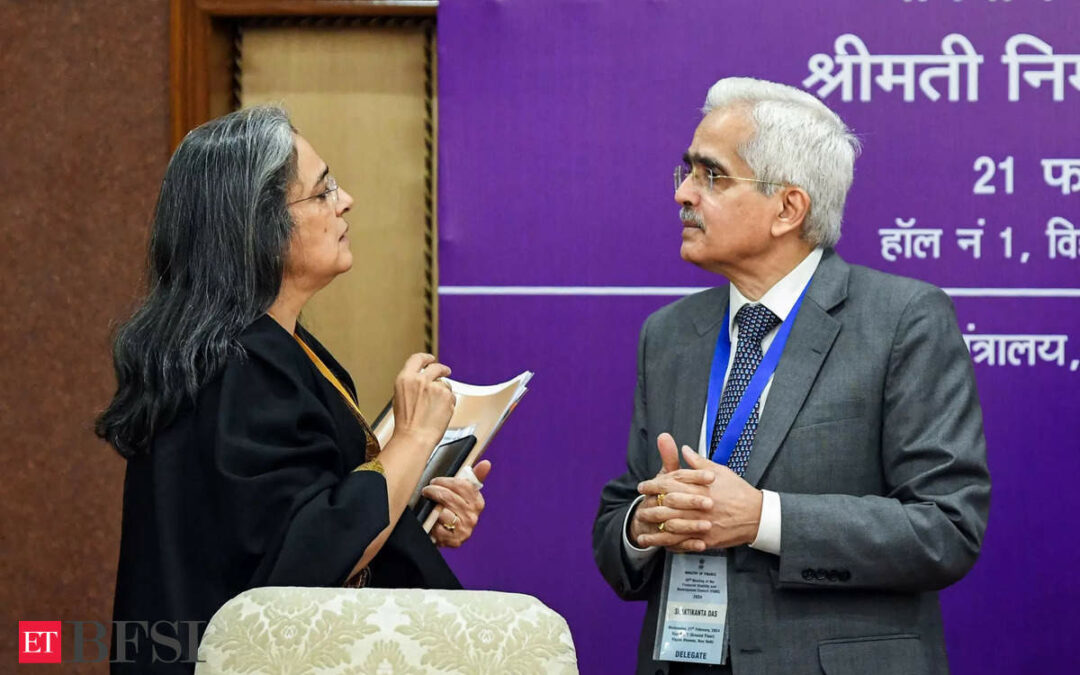The recent hyperactivity at both India’s banking regulator and the securities watchdog has caught the market by surprise. Commercial lenders have taken a rap for hiding their bad loans in private-credit funds. Investment banks are under the scanner for pushing initial public offerings past the finish line by funding mule accounts. A homegrown payments pioneer was told to shut down its bank.
Fintech firms in Bengaluru are complaining about regulatory overreach, as is the traditional finance industry in Mumbai. Even some overseas hedge funds are miffed at being asked to make onerous disclosures.
The screws are going to get tightened further. The reason is simple. Misbehavior of money in the commercial domain has paled into insignificance with the sudden spotlight on its role in the political arena. This scrutiny is affecting both the Reserve Bank of India and the Securities and Exchange Board of India, which are scrambling to repair their credibility.
The SEBI’s reputation took a knock last year after New York-based short seller Hindenburg Research’s attack on Adani Group put its own oversight of the sprawling conglomerate under scrutiny. An Indian Supreme Court-appointed committee said in its report that the regulator had hit a wall in ascertaining if any of the 42 contributories in the 13 offshore funds that had invested in the group’s listed firms were fronts for Gautam Adani, an infrastructure tycoon seen to be close to Indian Prime Minister Narendra Modi. Adani, who denied all of Hindenburg’s allegations, just last week described the short seller’s report as a campaign to politically defame India’s governance practices.
It would be embarrassing for the Indian regulator — which has until April to wind up its inquiry — to be beaten by US prosecutors. The US Attorney’s Office for the Eastern District of New York and the Justice Department’s fraud unit in Washington are probing if people or firms linked to Adani were involved in paying officials in India for favorable treatment on an energy project. While the investigation is at an advanced stage, it isn’t certain that it will lead to prosecution, Bloomberg News reported Friday. Adani companies described the report as false. The conglomerate’s market capitalization has slid by $6 billion to $184 billion over two days this week.The RBI’s credibility problem is even more plainly political than the Adani saga. It pertains to the Indian Supreme Court’s sudden ban on an instrument of anonymous political funding introduced by the Modi government in 2018. The judges are pushing the State Bank of India for full disclosures on who gave money to whom. As the country’s largest deposit-taking institution, the SBI is the touchstone of the RBI’s regulatory intent and capability. If the quality of the bank’s data dump of the so-called electoral bonds is any indication, it’s unclear if lenders in the country are adhering to even basic banking hygiene.
Beyond their common motivation to restore credibility, the two regulators have their individual goals. The SEBI is concerned about the froth in asset prices, concentrated positions in illiquid small-cap shares and an unhealthy craze among retail investors for trading options. The market watchdog reckons that it’s time for some spring-cleaning to prolong the excitement in the market. Indian equities, among the most expensive in the world, may extend their eighth straight annual gain once a third five-year term for Modi is assured in polls that get under way next month.
The RBI’s worries run deeper. A Modi win in the elections could spark a new multiyear investment cycle. Losing oversight of credit flows in the economy at this critical juncture could turn out to be a costly mistake.
Lending to overpriced IPOs — or against overvalued gold — aren’t the only risks. Person-to-person transactions, such as tenants using fintech apps to pay rents via cards, are a bit too innovative for the RBI’s taste. The central bank wants beneficiaries of credit-card transfers — on both personal and corporate cards — to be properly registered business entities, authorized to receive merchant payments. But such concerns with financial probity appear rather petty when compared with the elephant in the room: The hijacking of the country’s largest lender by the political executive to run an opaque corporate donations program.
Less than two months ago, the RBI practically shut down payments firm One 97 Communications Ltd.’s banking unit for being lax with its “Know Your Customer” rules. So imagine its horror when the State Bank of India divulged last week, under the top court’s order, that the biggest chunk of funding via electoral bonds facilitated by it came from a lottery operator. Future Gaming and Hotel Services Pvt. gave nearly 14 billion rupees ($165 million) to political parties when its profit in the last five years was less than 4 billion rupees.
When under attack for being too soft, institutions overcompensate in other ways. Expect both the RBI and SEBI to do exactly that by talking tough — and acting tougher.
(Disclaimer: The opinions expressed in this column are that of the writer. The facts and opinions expressed here do not reflect the views of www.economictimes.com.)










